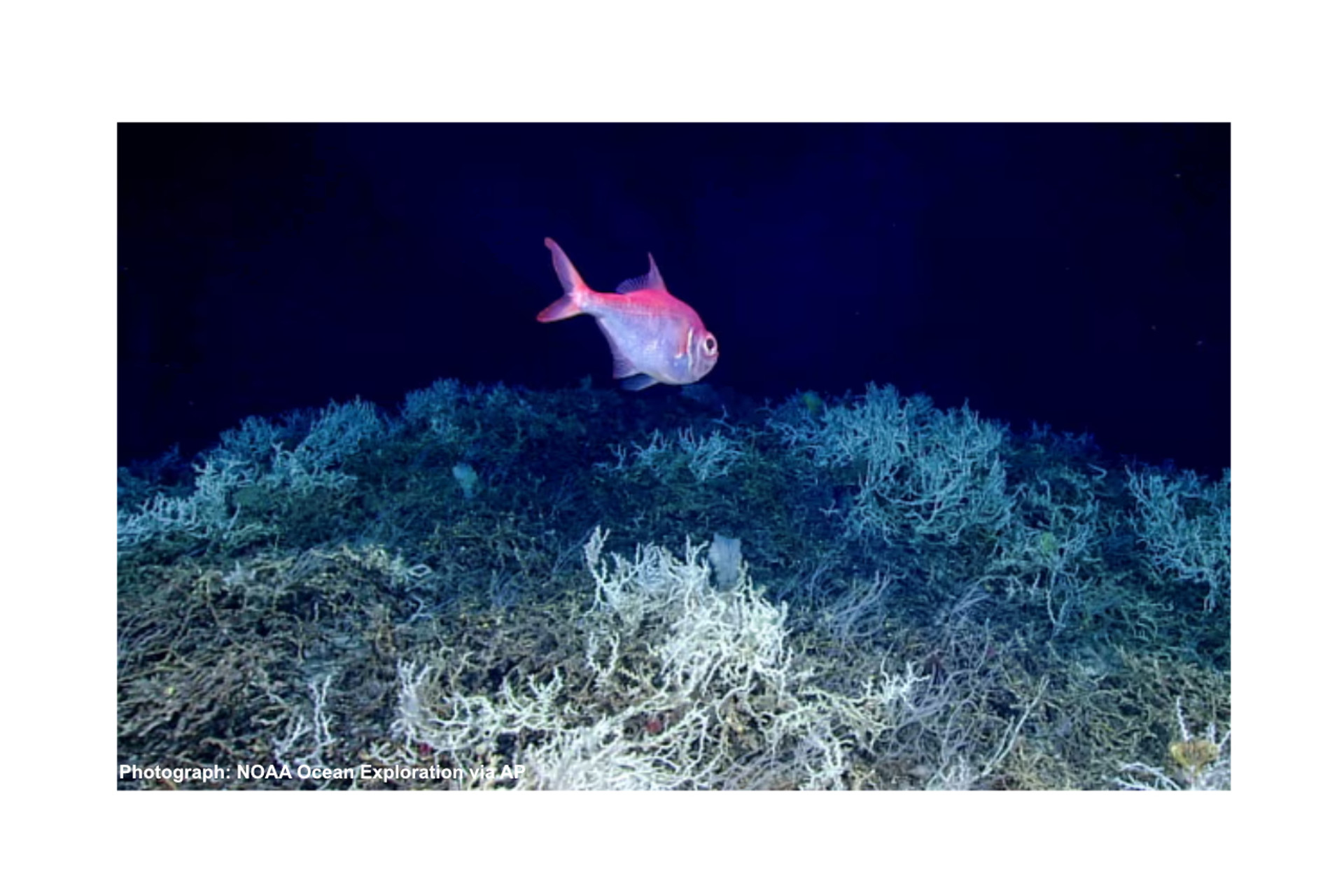Largest known deep-sea coral reef mapped off US Atlantic coast

Scientists have uncovered the largest known deep-sea coral reef off the US Atlantic coast, spanning an astonishing 310 miles from Florida to South Carolina and reaching widths of up to 68 miles. This colossal reef, described as "breathtaking in scale," had been hidden from detailed exploration despite the awareness of coral presence in the Atlantic since the 1960s. The breakthrough came with the application of advanced underwater mapping technology, enabling the creation of intricate 3D images of the ocean floor. Derek Sowers, an oceanographer from the non-profit Ocean Exploration Trust, remarked that this immense coral reef has been "right under our noses, waiting to be discovered." The discovery represents a significant advancement in understanding deep-sea ecosystems and underscores the potential for further exploration and conservation efforts.
Scientists, led by Derek Sowers and collaborators, have recently published maps of the largest known deep-sea coral reef in the journal Geomatics. Extending approximately 310 miles from Florida to South Carolina and reaching widths of up to 68 miles, this vast reef covers an area nearly three times the size of Yellowstone National Park. Situated at depths ranging from 655 feet to 3,280 feet (200 to 1,000 meters), where sunlight doesn't penetrate, the reef is an awe-inspiring sight. Stuart Sandin, a marine biologist at the Scripps Institution of Oceanography, described it as "eye-opening" and "breathtaking in scale." Unlike tropical coral reefs that rely on photosynthesis, the coral in this deep-sea environment filters food particles from the water for energy due to the absence of sunlight. This discovery provides valuable insights into the biodiversity and ecological dynamics of deep-sea ecosystems.
Deep-sea coral reefs, such as the recently discovered expansive reef off the US Atlantic coast, offer crucial habitats for diverse marine life, including sharks, swordfish, sea stars, octopuses, and shrimp. These ecosystems, although less explored than their tropical counterparts, play a vital role in marine biodiversity. Tropical reefs, exemplified by the Great Barrier Reef in Australia, are more familiar due to their accessibility to scientists and divers. However, the newly mapped deep-sea reef, spanning 310 miles and reaching widths of 68 miles, underscores the immense scale and significance of these less-explored ecosystems. There is potential for more discoveries, as only about 25% of the world's ocean floor has been mapped in high resolution, and advanced mapping technologies could unveil additional large deep-sea reefs. Deep-sea and tropical reefs alike face threats from climate change and disturbances related to activities like oil and gas drilling, emphasizing the importance of conservation efforts. To learn more please read Betsy Reed’s article in The Guardian https://www.theguardian.com/environment/2024/jan/19/deep-sea-coral-reef-atlantic-coast